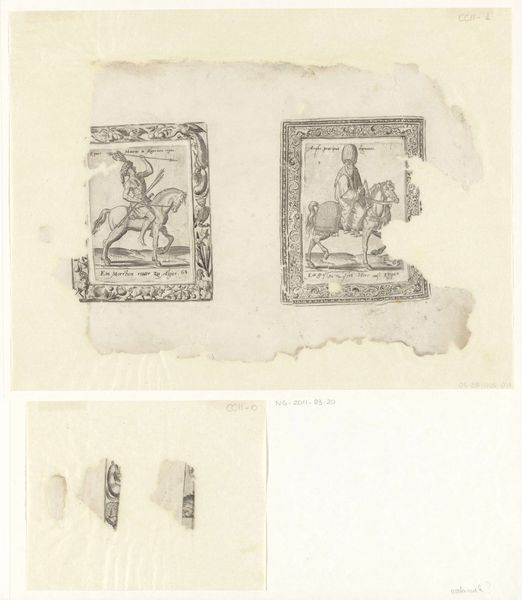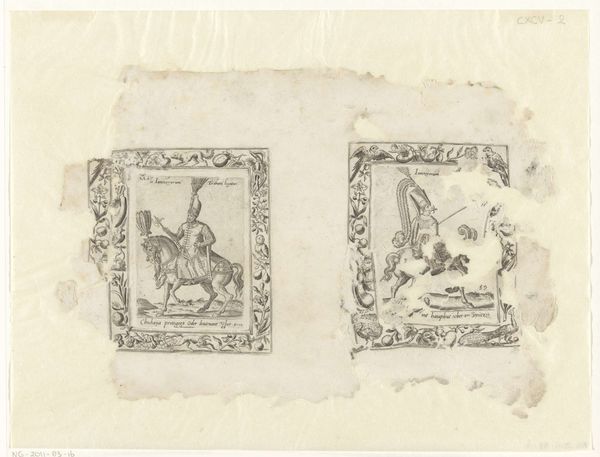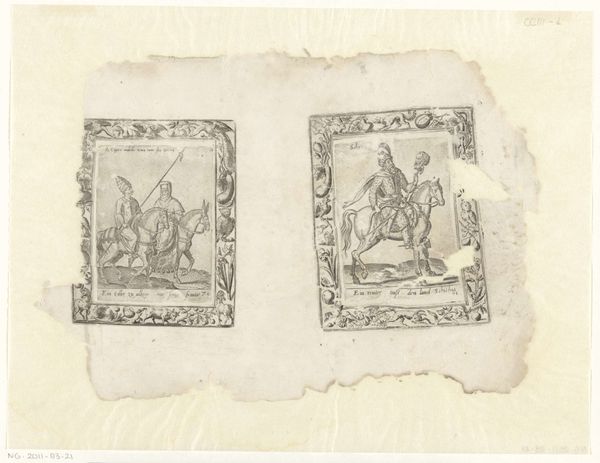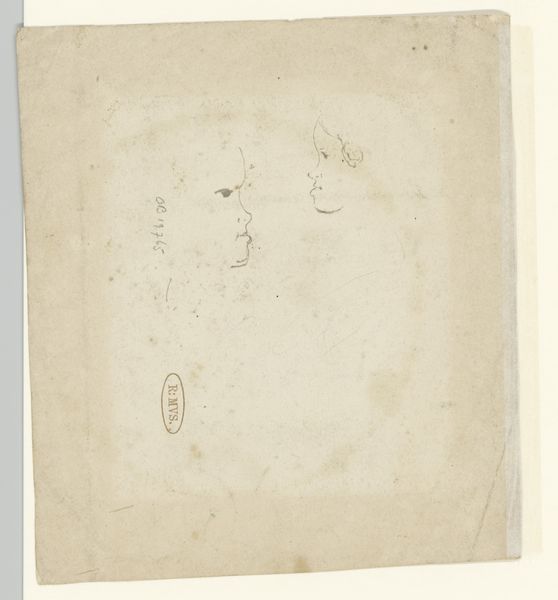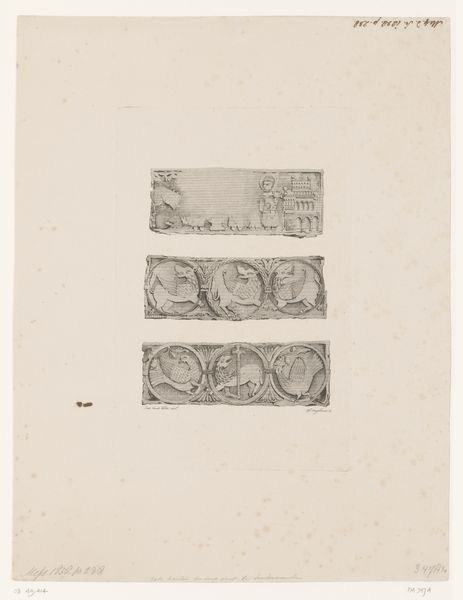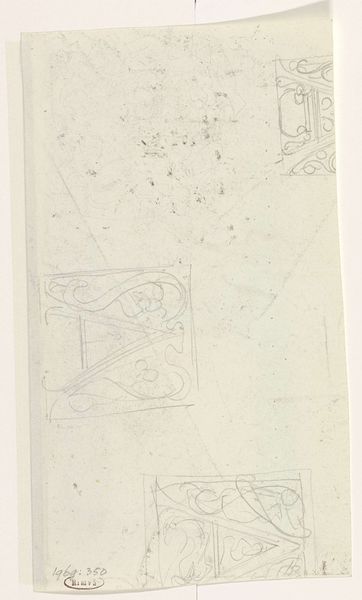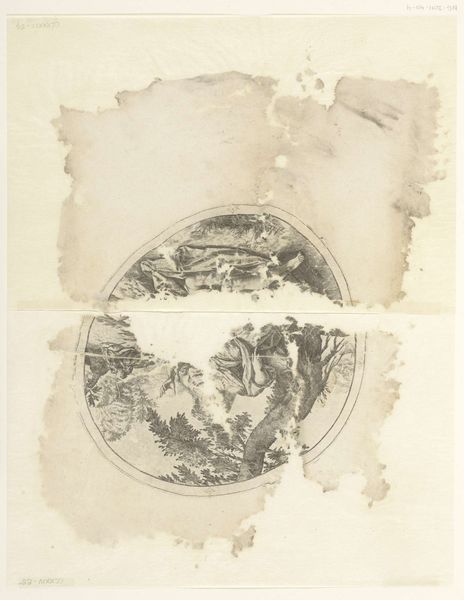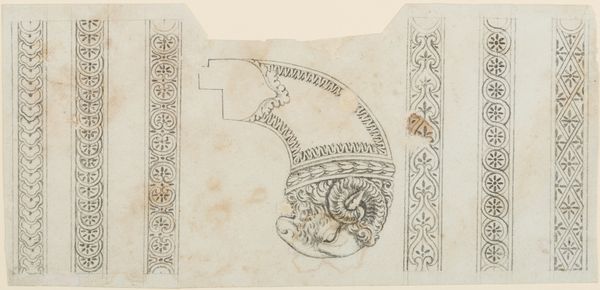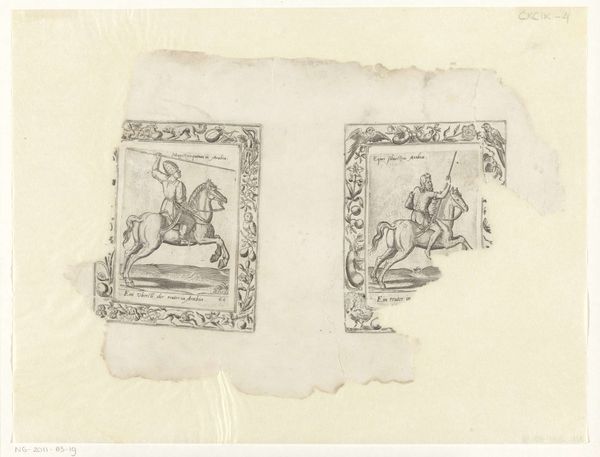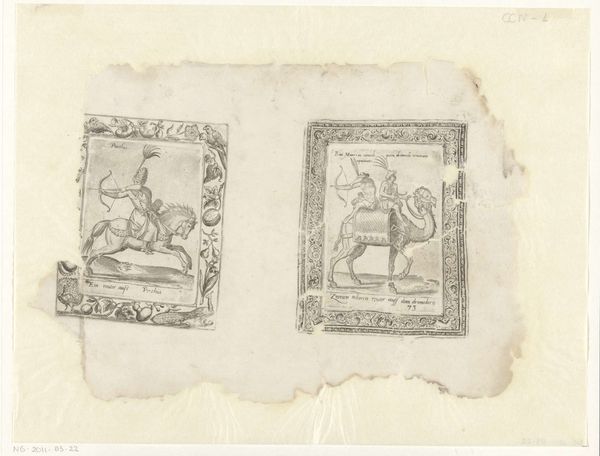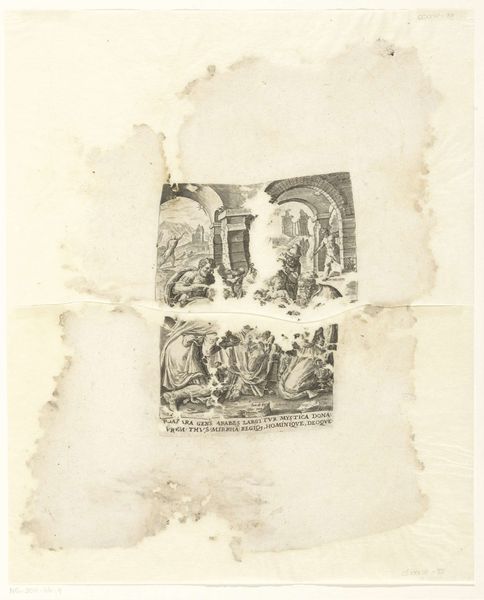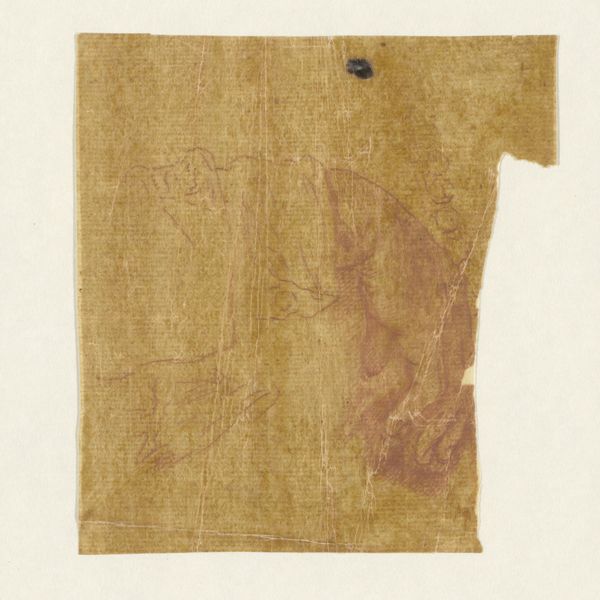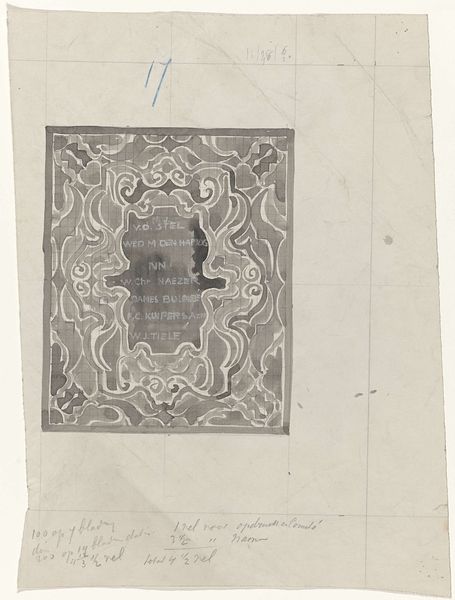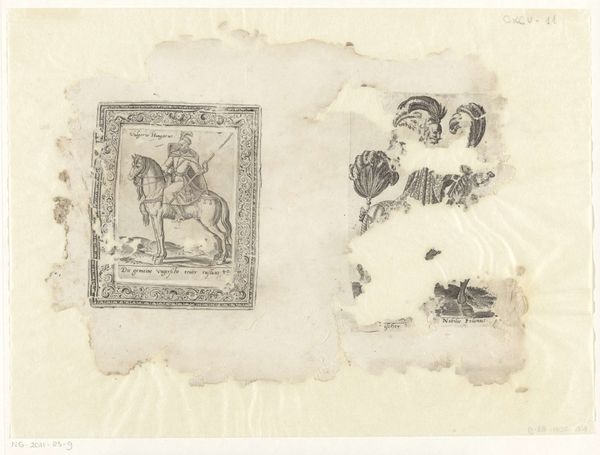
drawing, print, etching, paper, ink, engraving
#
portrait
#
drawing
#
light pencil work
#
quirky sketch
# print
#
etching
#
pencil sketch
#
old engraving style
#
figuration
#
paper
#
personal sketchbook
#
ink
#
sketchwork
#
ink drawing experimentation
#
ink colored
#
line
#
sketchbook drawing
#
history-painting
#
northern-renaissance
#
sketchbook art
#
engraving
Dimensions: height 236 mm, width 339 mm
Copyright: Rijks Museum: Open Domain
Abraham de Bruyn made this drawing, "Persian nobleman and rider," in the late 16th century using pen and brown ink. The drawing presents an interesting cultural exchange through the visual language of the time. During this period, European artists often depicted figures from different cultures, blending observed details with imagined elements. De Bruyn's drawing reflects a European fascination with the exotic East, filtered through the lens of contemporary fashion and artistic conventions. The image creates meaning by referencing both European and Persian visual codes. The attire of the rider is detailed, and the horse is presented in a manner consistent with the artistic norms of the time. To fully understand this drawing, one might consider the political and economic relationships between Europe and Persia during the 16th century, consulting travel accounts, costume books, and other visual sources. Examining the institutional context in which De Bruyn worked, such as his relationship with publishers and patrons, can also provide valuable insights into the drawing's purpose and meaning.
Comments
No comments
Be the first to comment and join the conversation on the ultimate creative platform.
